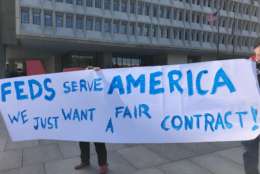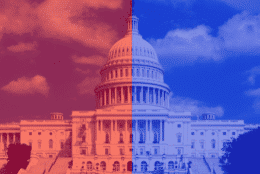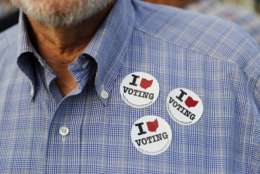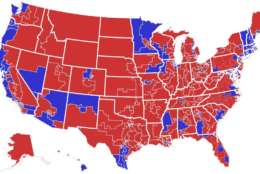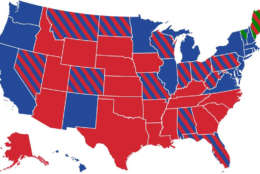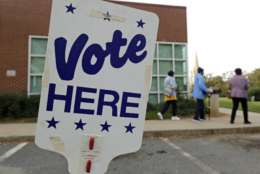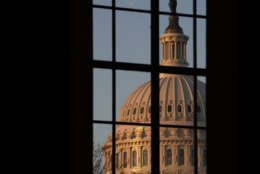Republicans
-
Unions representing federal and postal workers may be among the biggest winner in Tuesday’s midterm elections. Most went all out — though not exclusively — for Democratic candidates.
November 09, 2018 -
Come January, Democrats will control the House while Republicans will control the Senate and the White House. So at least two years of divided government are expected.
November 08, 2018 -
Democrats won the House in Tuesday's midterm elections but several Washington, D.C.-area races and seats important to federal workers were more of a mixed bag.
November 07, 2018 -
In today's Federal Newscast, with Democrats retaking the House, it could have a big effect on federal workforce issues and committee oversight.
November 07, 2018 -
Regardless of which political party wins today’s midterm election, federal workers are in relatively good shape.
November 06, 2018 -
Friday’s column asked if key workers and executives are leaving in protest or if they are simply retiring from a rapidly-aging government? So we asked you and here’s what we got.
November 05, 2018 -
Many D.C.-area representatives are largely secure, according to RealClearPolitics, but the national capital region is still seeing some hotly contested races in Virginia.
November 02, 2018 -
For federal employees, these midterms could have significant consequences. Use our map to see a selection of key Senate races that could impact how federal employees do their jobs.
November 02, 2018 -
Ira Shapiro, a former senior Senate staff member and trade negotiator, said the Senate is broken, with party lines having become something of a border wall.
October 31, 2018 -
Can the large number of federal workers in low-voter turnout cities and districts make the difference in next Tuesday’s congressional and gubernatorial elections? Many federal and postal union leaders think and hope so.
October 30, 2018 -
Many who have been comfortably stationed in Washington for decades are literally running for their political lives this year.
August 28, 2018 -
Back in less partisan times, federal and postal unions or at least their elected leaders leaned Democratic and but close ties with key Republicans in Congress, as well as with staffers whose committees dealt with civil service matters.
July 23, 2018 -
Although feds are supposed to avoid partisan politics at work, chances are you have a pretty good idea how most of your colleagues voted in the last election.
June 07, 2018 -
Republican politicians might be making a big mistake in writing off federal workers and retirees, and Democrats might make an equally big mistake by taking them for granted.
June 04, 2018 -
Politicians who want to reduce the cost of the federal retirement and labor-management programs say they are doing it for the most noble reasons.
June 01, 2018

